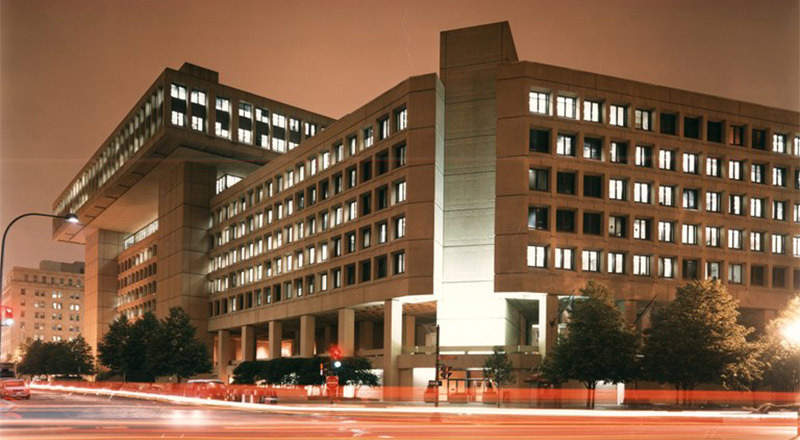FBI director says smartphone encryption hindering investigations 'across the board'
FBI Director Christopher Wray on Sunday revealed strong smartphone encryption has prohibited his agency from gleaning data from more than half of the devices it attempted to access in the past 11 months, hindering progress in a wide range of ongoing investigations.
Speaking at the International Association of Chiefs of Police conference in Philadelphia, Wray said the FBI has been unable to pull data from more than 6,900 devices, the Associated Press reports.
"To put it mildly, this is a huge, huge problem," Wray said. "It impacts investigations across the board — narcotics, human trafficking, counterterrorism, counterintelligence, gangs, organized crime, child exploitation."
Wray's comments reignite an ongoing debate that speaks to the efficacy of encryption on consumer electronic devices like smartphones and tablets. Law enforcement agencies have long argued that strong encryption obstructs efforts to keep the public safe, as vital evidence might be locked away on protected devices. Tech companies, who effectively stand as gatekeepers to customer data, have countered, saying it is in the public's interest to keep that information secure.
Apple brought the encryption debate to the fore last year when it fought U.S. Justice Department requests for assistance in accessing an iPhone 5c used by San Bernardino shooter Syed Rizwan Farook. Apple declined the department's overtures, saying that the creation of a backdoor for one phone would undermine the security of millions of iOS devices worldwide.
At the time, CEO Tim Cook called the FBI demand "dangerous."
"But now the U.S. government has asked us for something we simply do not have, and something we consider too dangerous to create. They have asked us to build a backdoor to the iPhone," Cook said in an open letter to customers last year.
A court battle ensued, but proceedings were cut short when the government successfully unlocked Farook's iPhone with the help of an unidentified outside party.
As for the FBI's current encryption-related problems, Wray did not specify how many of the more than 6,900 devices were Apple products. He did, however, strike a more balanced tone over the encryption issue than did his predecessor, James Comey.
"I get it, there's a balance that needs to be struck between encryption and the importance of giving us the tools we need to keep the public safe," Wray said.
As noted by the AP, the Justice Department under President Donald Trump has suggested it will take a more aggressive stance on the topic of encryption. However, the government has yet to details what policy changes, if any, will be made toward securing consumer data from technology companies, and whether those regulations cover both cloud computing services and on-device encryption.
 Mikey Campbell
Mikey Campbell











 Mike Wuerthele
Mike Wuerthele
 Malcolm Owen
Malcolm Owen
 Chip Loder
Chip Loder

 William Gallagher
William Gallagher
 Christine McKee
Christine McKee
 Michael Stroup
Michael Stroup
 William Gallagher and Mike Wuerthele
William Gallagher and Mike Wuerthele






